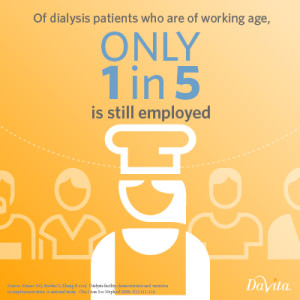January 28, 2014
15 Million Americans Could Face Reduced Healthcare Options and Higher Costs
Fellow physicians,
I’m writing this post today to encourage you to join me and show your support in helping stop proposed Medicare Advantage cuts.
As early as February, Congress is expected to craft a longer-term solution for a Medicare payment system based more on quality and value than on the current fee-for-service system. Medicare Advantage (MA), one of the programs undergoing increased scrutiny, has allowed physicians to provide far better overall care to patients. Currently, almost 15 million seniors and people with disabilities rely on the care and benefits provided by MA plans. Over the next 10 years, Washington plans to cut $200 billion from these plans, which may lead to higher out-of-pocket costs, limited choice in physicians, fewer plans for managing chronic conditions and increased hospital readmission rates. While this cut does not directly affect dialysis patients, it has the potential to impact patients on a Medicare Advantage plan who are currently in earlier stages of chronic kidney disease.
“If implemented, the proposed funding cuts could affect millions of Americans.”
When we learn of legislative proposals that could affect vulnerable patients, we want to make sure that members of the physician community are aware of them and have the opportunity to voice concerns.
How can you help?
Tell Congress to stop cuts to MA. It takes only one minute to help protect patients across the nation.
- Go to ProtectYourMA.com
- Provide your zip code
- Use the message template to contact your legislator
Thank you for your continued commitment to ensuring quality healthcare options for all.
Sincerely,
Allen R. Nissenson, MD, FACP
Chief Medical Officer

 Working patients. This was a hot topic closing out 2013 and will continue to gain attention throughout 2014. Admittedly, for some patients there are medical reasons that prevent them from  working when on dialysis; however, I foresee the kidney care community turning its focus toward the education of patients, employers and the public about the benefits of continuing to work despite being on dialysis. A key part of this educational effort will be an emphasis on treatment options for patients who can continue working. For such patients, the use of home dialysis modalities is particularly helpful.
Working patients. This was a hot topic closing out 2013 and will continue to gain attention throughout 2014. Admittedly, for some patients there are medical reasons that prevent them from  working when on dialysis; however, I foresee the kidney care community turning its focus toward the education of patients, employers and the public about the benefits of continuing to work despite being on dialysis. A key part of this educational effort will be an emphasis on treatment options for patients who can continue working. For such patients, the use of home dialysis modalities is particularly helpful. 

